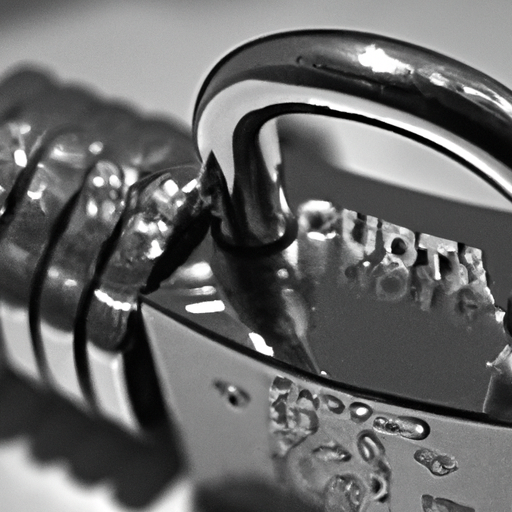In today’s digital age, the security of credit card information has become a critical concern for businesses and consumers alike. Protecting this sensitive data is not only essential for maintaining trust and credibility with customers, but also for avoiding potential legal liabilities and financial losses. In this article, we will explore the importance of credit card data protection, the potential risks and consequences of data breaches, and the proactive measures businesses can take to safeguard this valuable information. By staying informed and implementing robust security measures, businesses can mitigate the risks and ensure the protection of their customers’ credit card data.
Why Credit Card Data Protection is Important?
Credit card data protection is of paramount importance for businesses and individuals alike. With the increasing prevalence of cybercrime, credit card data theft has become a grave concern. The consequences of poor credit card data protection can be severe, both legally and financially, for businesses. Additionally, the reputation damage caused by a data breach can lead to loss of customer trust, which can be challenging to regain.
The Risks of Credit Card Data Theft
Credit card data theft poses significant risks to individuals and businesses. Hackers and cybercriminals target credit card data to commit fraudulent transactions, make unauthorized purchases, or even sell the information on the black market. The financial impact of such theft can be substantial, resulting in financial loss for both businesses and their customers. Furthermore, the loss of sensitive customer information can lead to identity theft and a breach of personal privacy.

Legal Consequences of Poor Credit Card Data Protection
Inadequate credit card data protection can have severe legal ramifications for businesses. Regulatory bodies, such as the Payment Card Industry Security Standards Council (PCI SSC), have established guidelines and standards to safeguard credit card data. Failure to comply with these regulations can lead to fines, penalties, and even legal action. Additionally, businesses may also be exposed to civil litigation from affected customers, further exacerbating the financial implications of a data breach.
Reputation Damage and Customer Trust
One of the most significant long-term consequences of a data breach is the damage it inflicts on a business’s reputation and customer trust. When a company fails to protect its customers’ credit card data, it erodes the trust that customers have placed in them. The negative publicity and widespread media coverage surrounding a data breach can tarnish a brand’s image, leading to a loss of customers and decreased revenue. Rebuilding trust with customers can be a lengthy and challenging process, making the investment in credit card data protection crucial to maintaining a positive reputation.

How to Protect Credit Card Data
Implementing robust security measures is essential to ensuring credit card data protection. By following industry best practices and complying with relevant standards, businesses can significantly reduce the risk of data breaches and protect sensitive customer information.
Implementing Strong Security Measures
Implementing strong security measures is the foundation of credit card data protection. This includes measures such as firewalls, antivirus software, and intrusion prevention systems. Regular software updates and patches are also crucial to address vulnerabilities and ensure the ongoing security of systems and networks.
PCI DSS Compliance
PCI DSS compliance is a set of security standards that businesses must adhere to when storing, processing, or transmitting credit card information. Compliance with these standards helps ensure the secure handling of credit card data and reduces the risk of data breaches. Compliance involves various requirements, including maintaining a secure network, implementing strong access control measures, regularly monitoring and testing systems, and conducting thorough security awareness training for employees.
Encryption and Tokenization
Encryption and tokenization are additional layers of protection that businesses can implement to safeguard credit card data. Encryption transforms sensitive data into an unreadable format, effectively rendering it useless to unauthorized individuals. Tokenization, on the other hand, replaces credit card data with unique tokens, reducing the risk of exposure during transactions or storage.
The Role of Employee Training
The importance of educating employees about credit card data protection cannot be overstated. Employees play a critical role in maintaining the security of credit card data, and their actions can significantly impact the risk of a data breach.
Importance of Educating Employees
Educating employees about credit card data protection is crucial to ensure they understand the risks associated with mishandling sensitive information. By creating awareness about the potential consequences of data breaches and the need for stringent security measures, employees can become proactive in protecting credit card data.
Regular Security Training
Regular security training sessions should be conducted to keep employees updated with the latest security protocols and best practices. These sessions should cover topics such as secure password management, identifying and reporting suspicious activities, and the proper handling of credit card data.
Best Practices for Handling Credit Card Data
Establishing and reinforcing best practices for handling credit card data is essential. This includes implementing secure data storage procedures, restricting access to authorized personnel only, and promoting the use of secure networks for transmitting sensitive information. Regular reminders and reinforcement of these practices can help minimize the risk of human error or negligence that may lead to a data breach.
Securing Online Transactions
With the increasing prevalence of online transactions, it is vital to implement robust security measures to protect credit card data during online transactions.
Secure Socket Layer (SSL) Certificates
Implementing SSL certificates ensures secure communication between the browser and the website, encrypting the data exchanged during online transactions. This encryption significantly reduces the risk of interception and unauthorized access to credit card data.
Two-Factor Authentication
Two-factor authentication adds an extra layer of security by requiring users to provide additional verification, such as a unique code or biometric data, in addition to their login credentials. This method helps prevent unauthorized access to credit card data, even if login credentials are compromised.
Address Verification System (AVS)
The Address Verification System is a security feature that compares the billing address provided during a transaction with the address on file with the credit card company. This verification step helps detect and prevent fraudulent transactions, as inconsistencies may indicate potential fraud.
Physical Security Measures
While digital security measures are crucial for protecting credit card data, physical security measures are also necessary to ensure the confidentiality and integrity of sensitive information.
Restricted Access to Cardholder Data
Limiting access to cardholder data to authorized personnel only is a fundamental physical security measure. This includes implementing secure access controls, such as key cards or biometric authentication, to restrict entry into areas where credit card data is stored or processed.
Video Surveillance and Alarms
Installing video surveillance cameras and alarms in areas where credit card data is handled adds an additional layer of physical security. Continuous monitoring and recording of activities can deter unauthorized access or detect suspicious behavior.
PCI Physical Security Requirements
The PCI DSS includes specific physical security requirements that businesses must meet to protect credit card data. These requirements may include measures such as installing physical barriers, securing equipment and devices, and implementing strict visitor control procedures to prevent unauthorized access.

Importance of Regular Audits and Assessments
Regular audits and assessments play a crucial role in evaluating the effectiveness of credit card data protection measures and identifying any vulnerabilities or gaps in security.
Internal and External Audits
Internal and external audits help assess the organization’s compliance with security standards and identify areas that require improvement. Internal audits allow businesses to perform self-assessments and identify weaknesses proactively, while external audits conducted by independent assessors provide an unbiased assessment of the organization’s security controls.
Vulnerability Scanning
Regular vulnerability scanning helps identify potential weaknesses in systems and networks that could be exploited by hackers. Scans should be conducted on a routine basis to detect vulnerabilities promptly and take appropriate measures to address them.
Penetration Testing
Penetration testing, also known as ethical hacking, involves simulating real-world attack scenarios to identify weaknesses in the organization’s security defenses. This proactive approach helps businesses identify vulnerabilities before they can be exploited by malicious actors.
Data Breach Response and Incident Management
Despite the best preventive measures, there is always a risk of a data breach. It is essential for businesses to have a well-defined incident response plan in place to minimize the impact of a breach and ensure a swift and effective response.
Developing an Incident Response Plan
An incident response plan outlines the steps to be taken in the event of a data breach. It includes procedures for identifying and containing the breach, assessing the damage, notifying affected parties, and working towards remediation. This plan should be regularly reviewed, updated, and tested to ensure its effectiveness.
Notifying Affected Parties
Timely notification of affected parties is crucial to mitigate potential damages resulting from a data breach. This includes notifying customers whose credit card data may have been compromised, regulatory bodies, and other relevant stakeholders. Clear and transparent communication is vital to maintaining trust and credibility.
Post-Breach Investigation and Remediation
Once a breach has been contained, it is essential to conduct a thorough investigation to understand the cause and extent of the breach. This investigation helps identify any vulnerabilities or weaknesses in the security measures and allows for appropriate remediation actions to be taken.
Legal and Regulatory Compliance
Compliance with legal and regulatory requirements is vital for businesses to ensure credit card data protection.
Understanding Payment Card Industry Data Security Standard (PCI DSS)
The Payment Card Industry Data Security Standard (PCI DSS) is a set of security standards established by major card brands to protect credit card data. Compliance with PCI DSS is mandatory for businesses that handle credit card information. Understanding and adhering to these standards helps minimize the risk of a data breach and avoid legal and financial consequences.
Other Relevant Data Protection Laws
In addition to PCI DSS, businesses must also comply with other relevant data protection laws, such as the General Data Protection Regulation (GDPR) in the European Union or the California Consumer Privacy Act (CCPA) in the United States. Familiarizing oneself with these laws and implementing necessary measures ensures legal compliance and safeguards credit card data.
Consequences of Non-Compliance
Non-compliance with legal and regulatory requirements can have severe consequences for businesses. This includes potential fines, penalties, and legal action by regulatory authorities. Moreover, non-compliance may result in the loss of customer trust and reputation damage, leading to a significant impact on the bottom line.
The Role of Data Security Policies
Data security policies serve as a guide for businesses to establish and enforce measures for protecting credit card data.
Creating Comprehensive Policies and Procedures
Creating comprehensive data security policies and procedures is critical in ensuring consistent adherence to security protocols. These policies should outline roles and responsibilities, acceptable use of credit card data, incident response procedures, and guidelines for securing physical and digital assets.
Enforcing Data Security Policies
Enforcement of data security policies is necessary to ensure compliance throughout the organization. Regular monitoring, audits, and employee training programs help reinforce the importance of adhering to the established policies and holding individuals accountable for their actions.
Regular Policy Review and Updates
Data security policies should be regularly reviewed and updated to reflect emerging threats, changes in technology, and evolving regulatory requirements. Keeping policies up to date helps businesses stay proactive in managing and mitigating risks associated with credit card data protection.
FAQs about Credit Card Data Protection
What is PCI DSS, and why is it important for businesses?
PCI DSS stands for Payment Card Industry Data Security Standard. It is important for businesses as it provides a comprehensive framework of security measures required to protect credit card data. Compliance with PCI DSS reduces the risk of data breaches, legal consequences, and reputational damage.
Do small businesses need to comply with data protection laws?
Yes, even small businesses that handle credit card data are obligated to comply with data protection laws, such as PCI DSS. Failure to comply can result in severe consequences, including fines, penalties, and legal action.
What should I do if my company experiences a data breach?
In the event of a data breach, it is crucial to follow a well-defined incident response plan. This plan should include steps such as containing the breach, assessing damages, notifying affected parties, investigating the breach, and implementing remediation measures. Consulting with legal and cybersecurity professionals is recommended to ensure a comprehensive and effective response.












